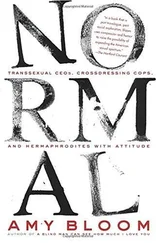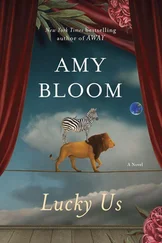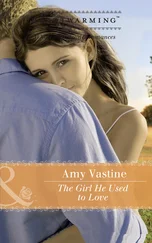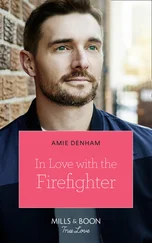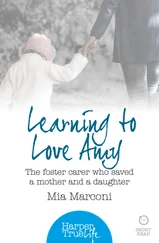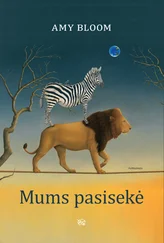“I’m not in pain.”
Greta laughed, not a common thing, and Max smiled back. When she laughed, she sounded like Edith Piaf, Max’s darling for the last thirty years. He has daydreams of playing Piaf for Elizabeth, and in them she sips red wine and sits without jiggling her feet.
“All right. But you’re not hap-pee.” Greta sang the last word.
“You said it’s a mistake to want happiness.”
“It is. But you do, you can’t help it. And I feel bad for you, dearie. That’s all.”
Greta had learned most of her English from a Dover war bride in Jersey City and had been calling people “dearie” and “ducks” and “love” with Czech softness ever since. It was a thing that Max, even as he prayed for her immediate, painless death, even as he envisioned Elizabeth on Greta’s side of the bed, found completely endearing.
“I think you should build a little shrine,” Greta said.
“I think you’re nuts.”
“So? You have not been spared on account of sanity, have you? A little shrine. Her picture from the yearbook, the one you keep in your sock drawer. Maybe a few votive candles. I have those old pressed glass holders, in the shape of hands. That would be nice, you could have those. And maybe some of the letters that came back to you, the ones in the garage. That would be good.”
Max sat down beside her, poking a hole for her navel and laying shell bits out in a star pattern.
“And then what?”
Greta lifted a hand carefully, balancing the packed sand on her forearm.
“And then, in your own little apartment, you listen to Mahler and drink Scotch, you mourn. You could pray.”
That Greta believed not only in a Greater Force but in an attentive, specific God was another source of astonishment to Max. “How can you, of all people?”
“It’s the least I can do,” she said, and moved from synagogue to synagogue, praying in the back until the night they ask her to join a committee.
“Am I going to be in my own little apartment? Is that what this is? You’re telling me to move out?”
Greta clicked her tongue, as she did when the boys were being particularly difficult.
“You can stay. You can go. We could keep each other company. You, me, grief. But why, Maxie? The boys are almost grown. Danny could live with you, even. I’m not abandoning you, I just think it would be better.” Greta turned her face toward the empty lifeguard chair. “I do get tired of watching you.”
“You get tired of watching me? After all these years, watching you cry at every goddamned intersection, watching you scare the shit out of the boys, watching you break a sweat just thinking about grocery shopping?” Max stopped, he didn’t even know why he wanted to go on. She was setting him free. He hated living with her; just two days ago, he’d written in his journal that he was serving a life sentence, with time added for good behavior.
Greta shrugged, and chunks of sand slid down.
“I’m getting up,” she said.
Max gave her a hand and dusted her off, wiping down the backs of her calves and thighs, trying to keep the sand from going into her suit bottom.
“I’m giving you the candle holders,” Greta said.
Not long after Max’s last letter, Elizabeth came home for one final weekend before the end of spring, shortly before she would have to find herself a real home. Standing on line at the Bagel Hut, squashed between two suede jackets, she stood patiently, even penitently, the edges of a pink sequinned turban brushing her eyelids. At each jingle of the door chime, everyone turned to scrutinize the next wave of customers: a pushy newcomer, sneaking in at the head of the line to make off with the really fresh bagels and the last of the whitefish chubs, or someone fondly, vaguely remembered from the old neighborhood, before everybody had become middle-aged and found themselves with expensive, youthful clothing and spoiled children. In Great Neck a woman’s face or hair color meant nothing; only the backs of the hands and the little hump at the base of the neck told you the truth.
Elizabeth turned at the jingle, with everyone else, and saw Max. She pushed through the crowd surging into the small space she’d left and held on to his sleeve, making herself talk.
“Hi. I can’t believe you’re in here. Margaret’s getting married tonight. That’s why I’m back.”
“That’s why you’re back?”
Something had changed his face. Whatever it was had torn up his cheeks, leaving them so soft and pulpy that if she’d had the nerve to touch him, skin would have stuck to her finger.
“Max, are you all right?”
He backed out of the store, brushing against the thick coats, his hands feeling for the doorpull behind him.
Elizabeth followed him onto the street, forgetting the whitefish salad and bagels and three kinds of cream cheese she’d offered to pick up for the get-acquainted lunch with her mother’s groom and his sister. She stood a few steps behind Max, thinking, He is not walking away from me, he loves me.
“Go home, Elizabeth.”
“I am going home, this was my last stop. What is wrong with you?”
Max kept going, bent over like some dark-jacketed horseshoe crab scuttling for retreat, for the absence of contact.
“I’m sorry I didn’t write. I just … I don’t know, I couldn’t. I’m really sorry. Max, I’m really sorry.” She yelled into the cold, garlicky air, startling two women halfway into Bagel Hut, friends of Margaret’s who waved and watched as Max walked faster. Max and Elizabeth stood half a block apart, on either side of the bank parking lot where he’d taught her to drive a stick-shift, and he shouted something the wind took away, and then he stopped.
It was tears. Tears had changed his face, as they were changing it right now, breaking down his flesh with little hammers until there was nothing left but watery mass and two red wells of misery.
“No one told you?”
“Max, I don’t talk to anyone anymore. Rachel’s in Kenya. Is it the boys?”
“Benjamin.”
They sat on the bench across from the parking lot and Max told Elizabeth about Benjamin, about Greta reluctantly, bravely taking him to his Cub Scout meeting, about the wet leaves and the teenage boy driving the van too fast around a narrow corner, one that had already been marked with a DANGEROUS CURVE sign. And the car partially crushed into the trees, leaving Greta enough room not only to move around but to open her door and walk out to greet the ambulance. And it looked like Benjie would recover, not even be scarred by all the glass, and then he got an infection.
“You know he had Addisons? It only seems that no one in my family has an immune system; Benjie really didn’t. The scratches from the accident killed him. I moved back in; I had to, since Greta was hardly leaving the house after that. She’s seeing a shrink now, the guy I used to see. The boys are in therapy, too. I don’t know, I think it helps Danny, but he’s the strong one anyway. Marc is just …” Max turned away. “The world is a terrible place, sweetheart.”
She touched the edge of his jacket for comfort, fingering the little cracks in the old leather.
“I’m here. If you need me, I’m here.”
“No, you’re not. You’re at college, leading a college girl life, and I am here, leading my life. Enough.” He stood up. Elizabeth sat like a lump, arms around her legs. She shook her head, wanting to tell him it looked like she would actually graduate in June, that she’d passed all her courses and turned in all her papers, despite occasional, profound lapses in concentration, two weeklong bouts of self-prescribed bed rest, and several trials of psychotropic medications that left her dry-mouthed and dizzy, something pale green and sticky leaking from her right breast.
Читать дальше


